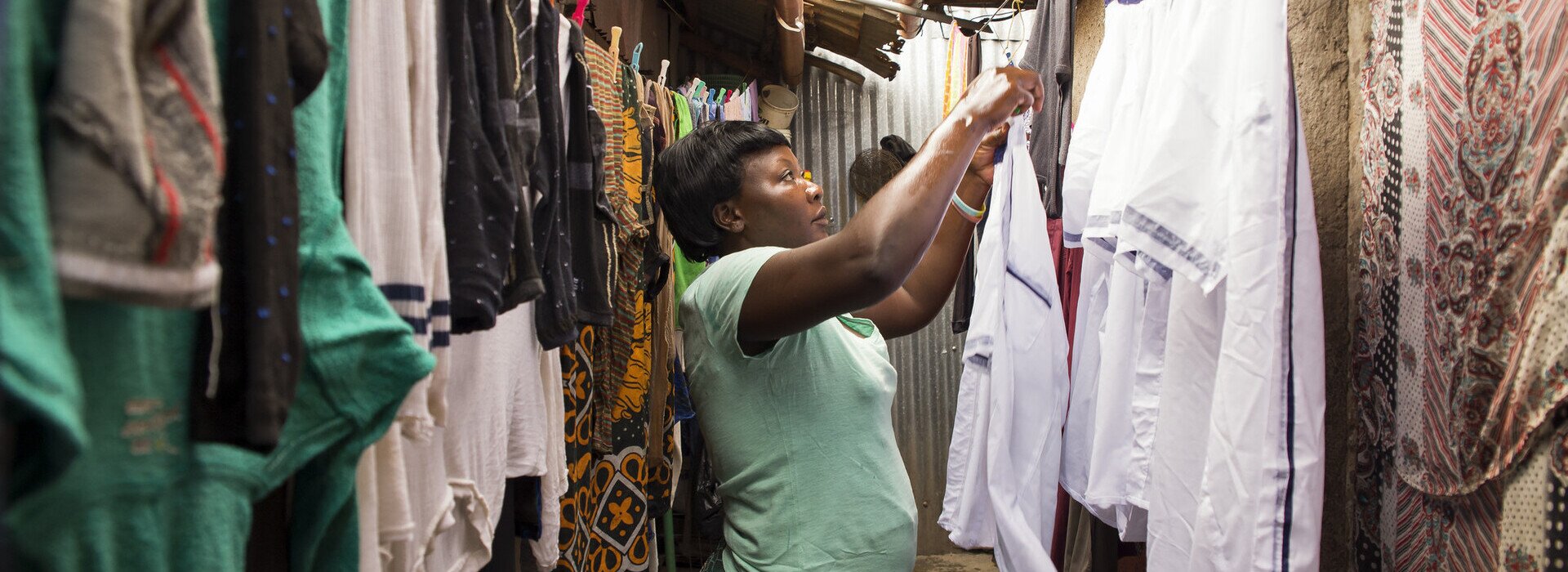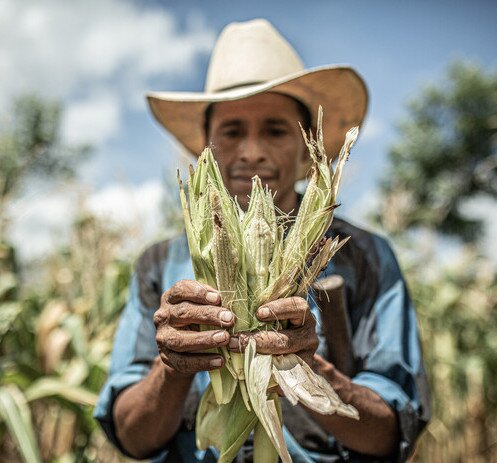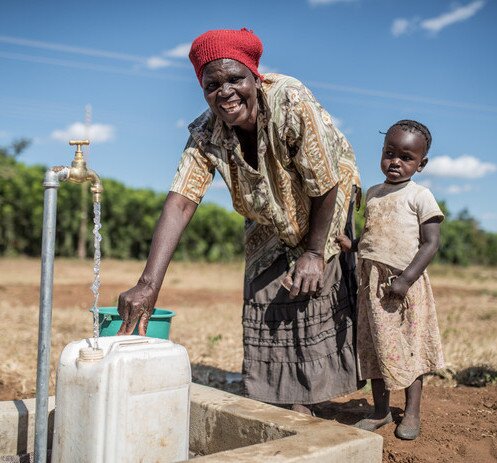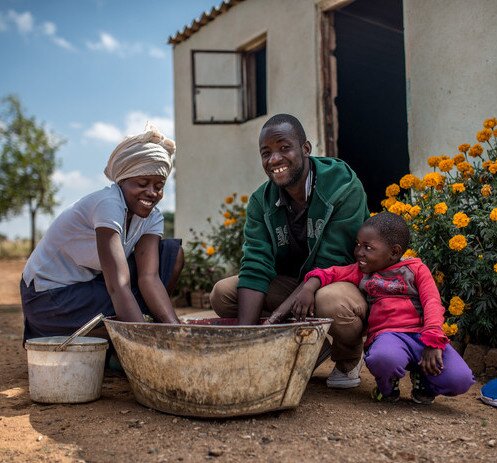Women make up two-thirds of the paid ‘care workforce’. (Photo: Katie G. Nelson/Oxfam)
World’s 22 richest men have more wealth than all the women in Africa
The world’s 2,153 billionaires have more wealth than the 4.6 billion people who make up 60 per cent of the planet’s population, revealed a report from Oxfam in 2020 ahead of the World Economic Forum (WEF) in Davos, Switzerland.
Inequality puts heavy burden on poor women and girls
Global inequality is shockingly entrenched and vast, and the number of billionaires has doubled in the last decade. Oxfam’s report, ‘Time to Care’, shows how our sexist economies are fuelling the inequality crisis—enabling a wealthy elite to accumulate vast fortunes at the expense of ordinary people, particularly poor women and girls:.
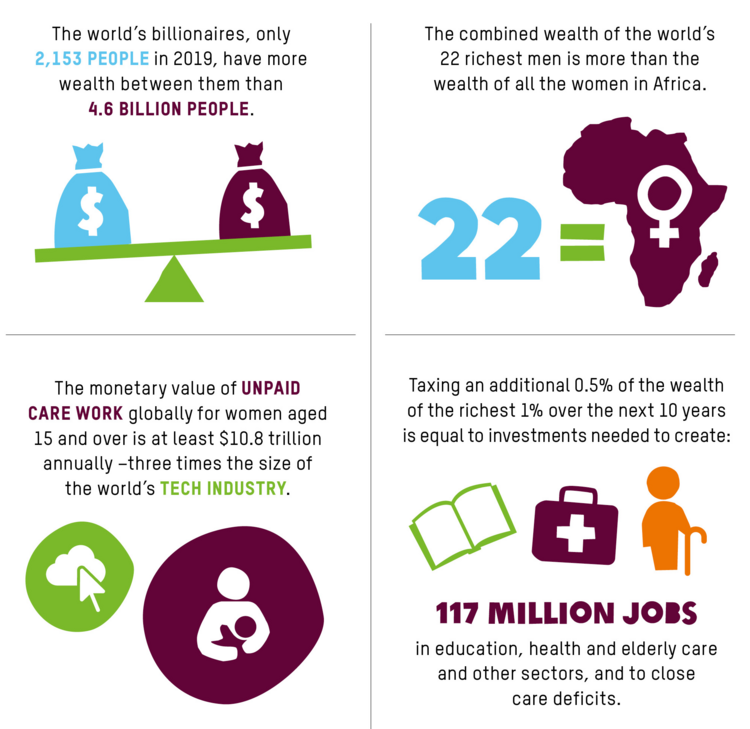
Key findings from the report:
- The 22 richest men in the world have more wealth than all the women in Africa.
- Women and girls put in 12.5 billion hours of unpaid care work each and every day—a contribution to the global economy of at least US$10.8 trillion a year, more than three times the size of the global tech industry.
- Getting the richest one per cent to pay just 0.5 per cent extra tax on their wealth over the next 10 years would equal the investment needed to create 117 million jobs in sectors such as elderly and childcare, education and health. This could help lift the responsibility of care from women and tackle poverty and inequality.
Women and girls are among those who benefit least from today’s economic system. They spend billions of hours cooking, cleaning and caring for children and the elderly. Unpaid care work is the ‘hidden engine’ that keeps the wheels of our economies, businesses and societies moving. It is driven by women who often have little time to get an education, earn a decent living or have a say in how our societies are run, and who are therefore trapped at the bottom of the economy.
Amitabh Behar, the Chief Executive Officer of Oxfam India who was in Davos to represent the Oxfam confederation in 2020
Climate change and AN aging society: A looming crisis for carers
The pressure on carers, both unpaid and paid, is set to grow in the coming decade as the global population grows and ages. An estimated 2.3 billion people will be in need of care by 2030—an increase of 200 million since 2015. Climate change could worsen the looming global care crisis—by 2025, up to 2.4 billion people will live in areas without enough water, and women and girls will have to walk even longer distances to fetch it.
Women do more than three-quarters of all unpaid care work. They often have to work reduced hours or drop out of the workforce because of their care workload. Across the globe, 42 per cent of women of working age cannot get jobs because they are responsible for all the caregiving, compared to just six per cent of men.
Women also make up two-thirds of the paid ‘care workforce’. Jobs such as nursery workers, domestic workers, and care assistants are often poorly paid, provide scant benefits, impose irregular hours, and can take a physical and emotional toll.
Oxfam's Advocacy: Improve public services and infrastructure to protect carers
At the same time, governments are underfunding vital public services and infrastructure that could help reduce women and girls’ workload. For example, providing access to an improved water source could save women in parts of Zimbabwe up to four hours of work a day, or two months a year.
‘Governments created the inequality crisis—they must act now to end it. They must ensure corporations and wealthy individuals pay their fair share of tax and increase investment in public services and infrastructure. They must formulate policies to tackle the huge amount of care work done by women and girls, and ensure that people who do some of the most important jobs in our society are paid a living wage. Governments must prioritise care as being as important as all other sectors in order to build more human economies that work for everyone, not just a fortunate few.’ said Behar.
Impact Story: Who Cares - Creating a Fairer World for All
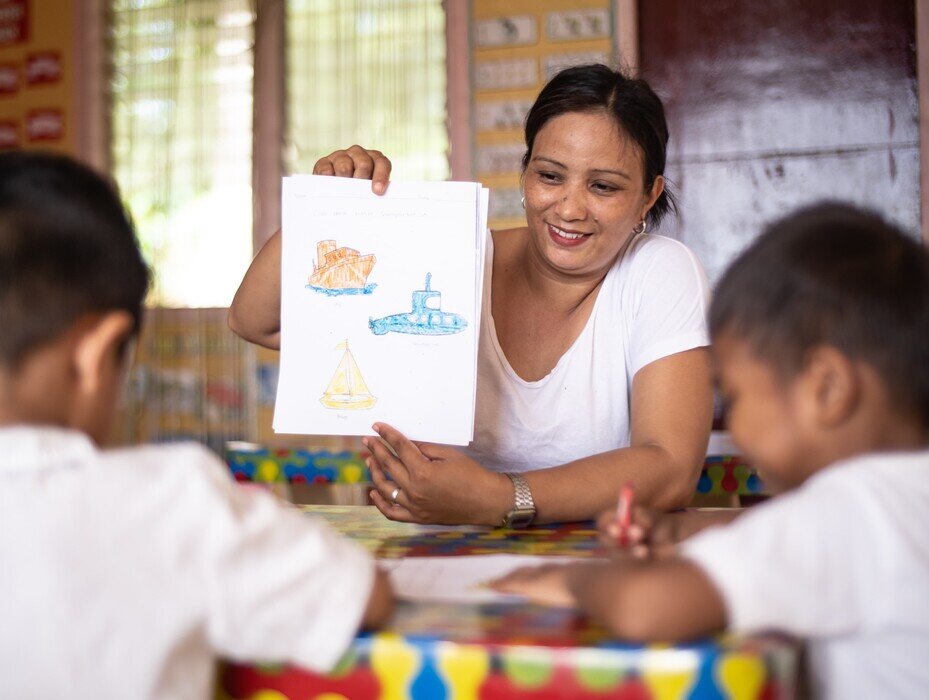
‘With my Husband's help, Our relationship as a family became better. We’re happier. I am now closer to my children.’
Rowena Abeo is from Salcedo Town, Tastern Samar in the Philippines, and is a day care worker. After receiving training from Oxfam and learning about unpaid care work, her husband started sharing the housework.
(Photo: Jed Regala / Oxfam)
My name is Rowena and I am a day care worker from Salcedo Town in the Philippines. In the past in my community, women used to just work in the house–cooking, cleaning and taking care of children. They also fetched water … With all the work that was assigned to women … [t]here would always be a gap between women and men–with the amount of money they earned, with the education they got or with the time they could spend on things outside the house.
I’ve been a day care worker in a school for ten years. And I’m also a housewife. Being a housewife takes so much time … The heaviest housework is fetching water. It takes us three to four hours to go and get water because our water source is far. We have to go to the river and lift our own water cans.
In the past, my husband didn’t help in the household at all. It was a lot of work that I had to do on top of what I did in the school, but my husband and I didn’t question it. That changed when we started to attend trainings and seminars and learnt about unpaid care work. Now he always helps around the house. We also have water tanks now through the help of Oxfam and SIKAT. We finally have taps and a hose, so we don’t have to carry water cans and pails anymore.
There are many communities where women are still struggling a lot. I am happy that now there is equality here between women and men. Women are more empowered. Someday I hope this will happen not just here in Salcedo, but hopefully in the whole Philippines.
Alarming inequality in Hong Kong
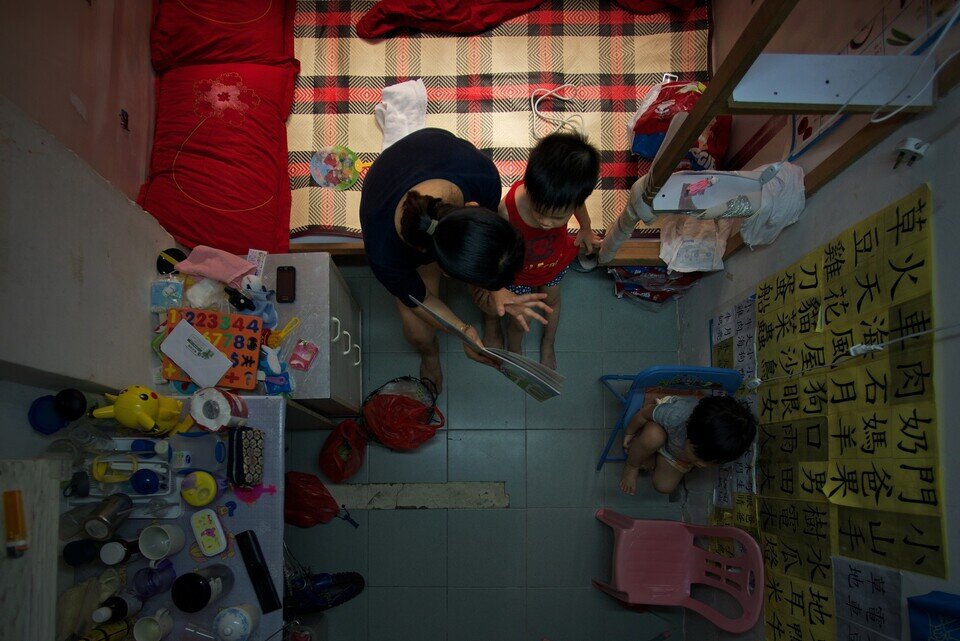
Women’s labour force participation rate only accounts for 20.7% of that of poor households, which is far less compared to 35.5% among men.
(Photo: Ko Chung Ming/Next Plus)
Inequality in Hong Kong is a spiralling crisis.
- Hong Kong’s Gini coefficient in 2016 reached 0.539 – the highest in 45 years.
- According to the data Forbes published in 2019, the 50 richest people in Hong Kong’s assets amounted to HK$2.23 trillion, an 18 per cent increase from August 2016 (HK$1.89 trillion).
Further, many women are still trapped in poverty due to their family responsibilities.
- According to the Census and Statistics Department the labour force participation rate among poor women only accounts for 20.7 per cent of that of poor households compared to the 35.5 per cent among men.
- This is 30.1 percentage points lower than the 50.8 per cent rate among women from the average household.
- The female labour force participation rate further drops to 10.8 per cent if there are children aged 15 or below and seniors aged 65 or above in poor households. This indicates that women in poor households cannot find employment because they have to take care of their families.
The Hong Kong government should invest more in public services and pass laws to protect casual workers
Oftentimes, women from poor households can only work part-time jobs. This limits their career choices, and a lot of them end up taking up casual work that only pays meagre wages and offers little to no protection. Despite this sizeable problem, the Hong Kong government has failed to provide them with adequate labour protection.
According to the Employment Ordinance, being employed under a continuous contract refers to an employee who has been employed continuously by the same employer for four weeks or more, with at least 18 working hours per week. An employee must be employed under a continuous contract and fulfil various requirements as stipulated in the Ordinance to be eligible for employee benefits other than the basic protections such as rest days, statutory holidays, annual leaves, paid maternity leaves, sickness allowance, severance payment and long service payment. Casual workers are also known as non-418 employees, as they work continuously for the same employer for fewer than four weeks and/or fewer than 18 working hours per week.
Although the Hong Kong government has recently introduced various policies to alleviate poverty, the low public recurrent expenditure will not help improve the situation of these women. According to the latest figures from the Hospital Authority, patients must now wait an average of 70 and 68 weeks respectively to see an orthopaedic doctor and internist at a public hospital. Further, figures from the Social Welfare Department shows the average waiting time for Care-and-Attention places and Nursing Home places is 20 and 22 months respectively. Moreover, Oxfam calculated that on average, only 1 in 156 children aged 0 to 2 receive subsidised full-day childcare services. With insufficient public services available, carers in Hong Kong are placed at an even greater disadvantage.
To address these issues, Oxfam has the following recommendations for the Hong Kong government:
- Spend additional recurrent expenditure on initiatives such as increasing the quota for occasional child care services, Care-and-Attention places and Nursing Home places for the elderly, and the public health care.
- Improve labour protection and benefits, to ensure people who work can provide for themselves and their families, and live with dignity. The government, as the biggest employer, should also take the lead and pay its workers a living wage, and amend the Employment Ordinance so that casual workers who work 72 hours a month are also protected.
- In the long run, review the current tax system and implement ability-to-pay taxation in order to better redistribute resources, narrow the gap between the rich and poor, and create a more equitable society.
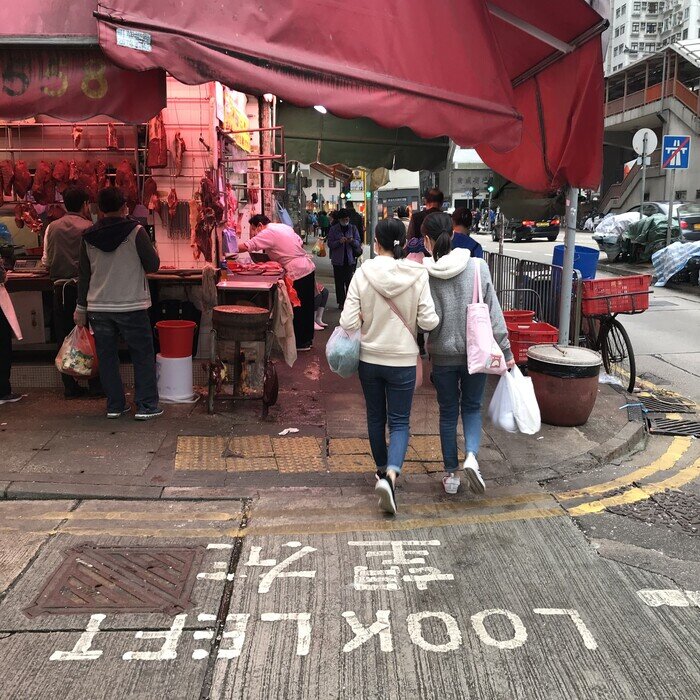
To learn more about women in poverty in Hong Kong and Oxfam's Policy advocacy and programme

